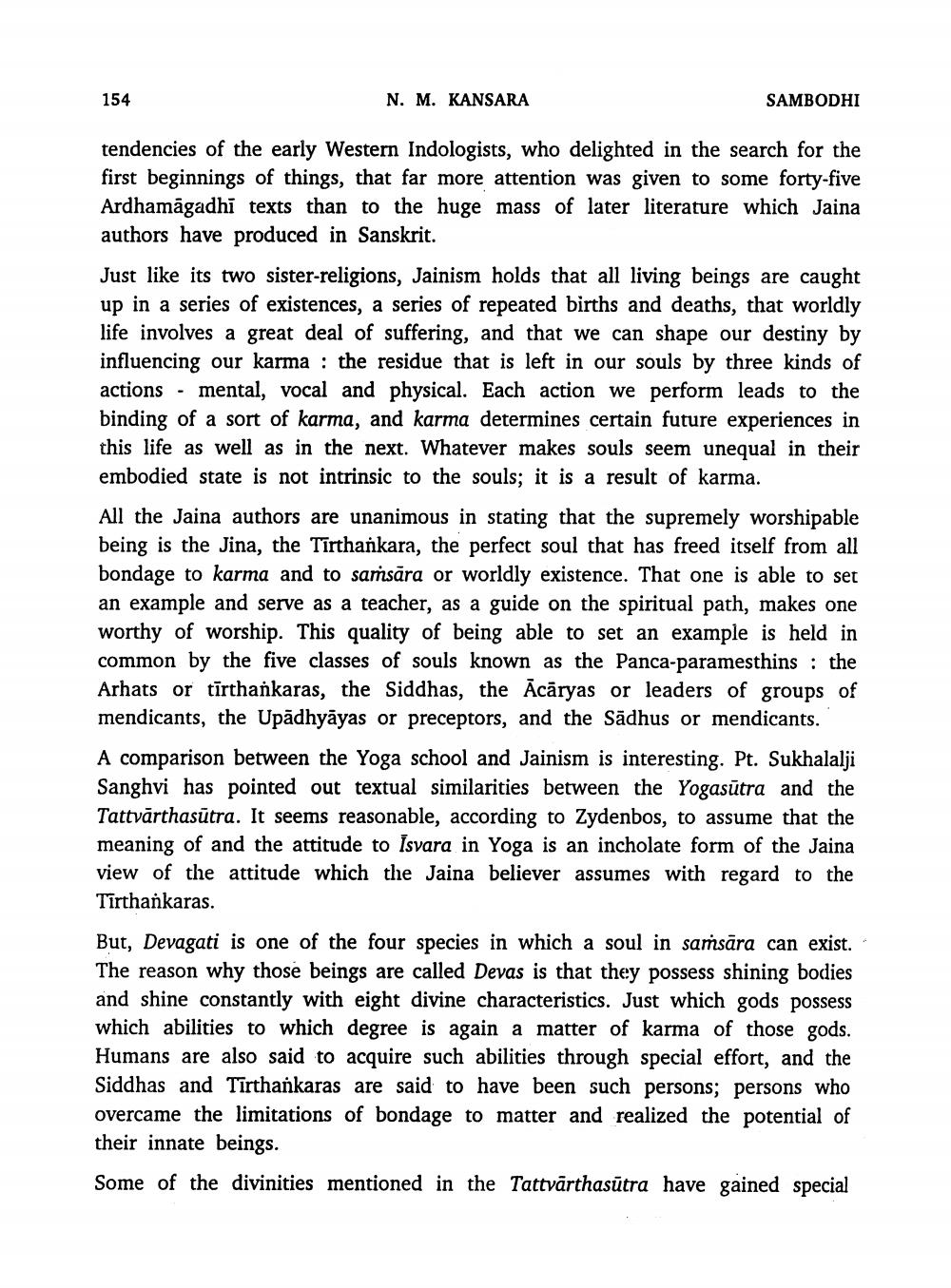________________
154
N. M. KANSARA
SAMBODHI
tendencies of the early Western Indologists, who delighted in the search for the first beginnings of things, that far more attention was given to some forty-five Ardhamāgadhi texts than to the huge mass of later literature which Jaina authors have produced in Sanskrit.
Just like its two sister-religions, Jainism holds that all living beings are caught up in a series of existences, a series of repeated births and deaths, that worldly life involves a great deal of suffering, and that we can shape our destiny by influencing our karma : the residue that is left in our souls by three kinds of actions - mental, vocal and physical. Each action we perform leads to the binding of a sort of karma, and karma determines certain future experiences in this life as well as in the next. Whatever makes souls seem unequal in their embodied state is not intrinsic to the souls; it is a result of karma. All the Jaina authors are unanimous in stating that the supremely worshipable being is the Jina, the Tirthankara, the perfect soul that has freed itself from all bondage to karma and to samsāra or worldly existence. That one is able to set an example and serve as a teacher, as a guide on the spiritual path, makes one worthy of worship. This quality of being able to set an example is held in common by the five classes of souls known as the Panca-paramesthins : the Arhats or tīrthankaras, the Siddhas, the Ācāryas or leaders of groups of mendicants, the Upādhyāyas or preceptors, and the Sädhus or mendicants.
A comparison between the Yoga school and Jainism is interesting. Pt. Sukhalalji Sanghvi has pointed out textual similarities between the Yogasūtra and the Tattvārthasūtra. It seems reasonable, according to Zydenbos, to assume that the meaning of and the attitude to Isvara in Yoga is an incholate form of the Jaina view of the attitude which the Jaina believer assumes with regard to the Tirthankaras. But, Devagati is one of the four species in which a soul in samsāra can exist.“ The reason why those beings are called Devas is that they possess shining bodies and shine constantly with eight divine characteristics. Just which gods possess which abilities to which degree is again a matter of karma of those gods. Humans are also said to acquire such abilities through special effort, and the Siddhas and Tirthankaras are said to have been such persons; persons who overcame the limitations of bondage to matter and realized the potential of their innate beings.
Some of the divinities mentioned in the Tattvārthasūtra have gained special




